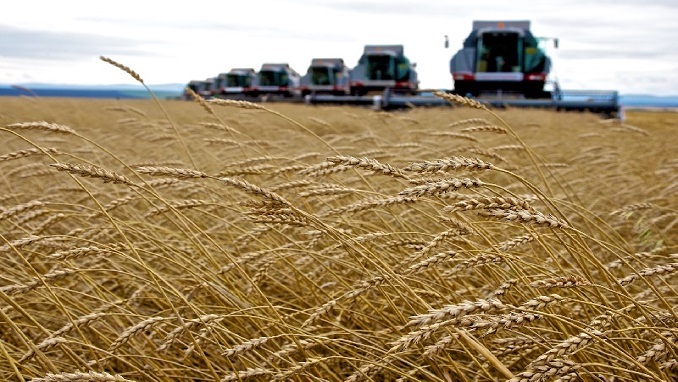After wrapping up its first year trading Black Sea and Argentinian grain, Gemcorp Group plans to boost sales to Africa and the Middle East, where locust plagues have hurt crops.
The company sold about 2 million tons of grain—mostly wheat—to the region so far this season and provided finance for some of the cargoes, about half of which came from Russia. It has agreed to supply 200,000 tons of wheat to Ethiopia in the coming months and plans to mostly use Russian and Ukrainian grain from the upcoming harvest, it said.
Gemcorp, which recently hired grain-industry veteran Christian Joerg to lead its agricultural commodities unit, is one of the latest companies to expand in Black Sea grains. It also wants to boost its presence in Africa and the Middle East as the worst desert-locust plague in decades threatens food security in parts of the region.

“We are well positioned to grow next season based on what we achieved,” Jamie Afnaim, managing director at London-based Gemcorp, said in an interview. “We have a deeper positioning in the Russian market than we do in other markets and I would expect Russia - subject to quality of supply and prices - to be our largest origin.”
Russia lost its position as the world’s top wheat exporter this season, partly after introducing a quota to protect local supplies amid the coronavirus pandemic. The government is considering setting a quota next season too, even though the nation is expected to collect one of its biggest-ever harvests.
“We are very aware of the risk of the quota being introduced during next season,” Afnaim said. “We’ll work to pivot to other origins if the grain isn’t available from Russia.”
Ethiopia has been Gemcorp’s largest market this season, with wheat being sourced from Russia, Ukraine and Argentina, it said. Failure to combat locusts in the Horn of Africa and Yemen could result in crop and livestock losses of as much as $8.5 billion by year-end, according to the World Bank.
The company’s strong business ties in Africa should help it continue to provide funding and grains to clients on the continent, a region that has been “traditionally under-served” by merchants and lenders, Afnaim said.
“That need for structured-finance solutions at the destination is what’s really going to drive the volume and the business that we do this season,” he said.
The company, which was established by former Goldman Sachs Group Inc. partner Atanas Bostandjiev in 2014, has also sold grains to other countries including Egypt, through government tenders and private deals.

Follow us on social media: